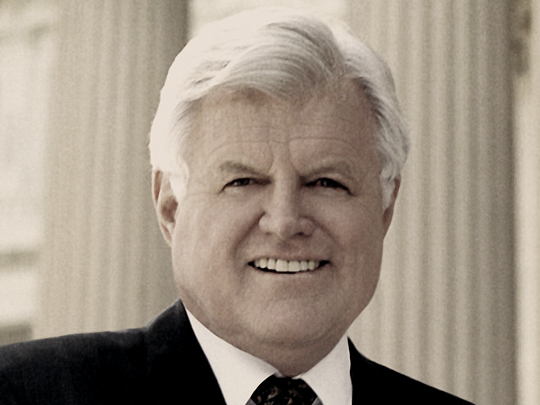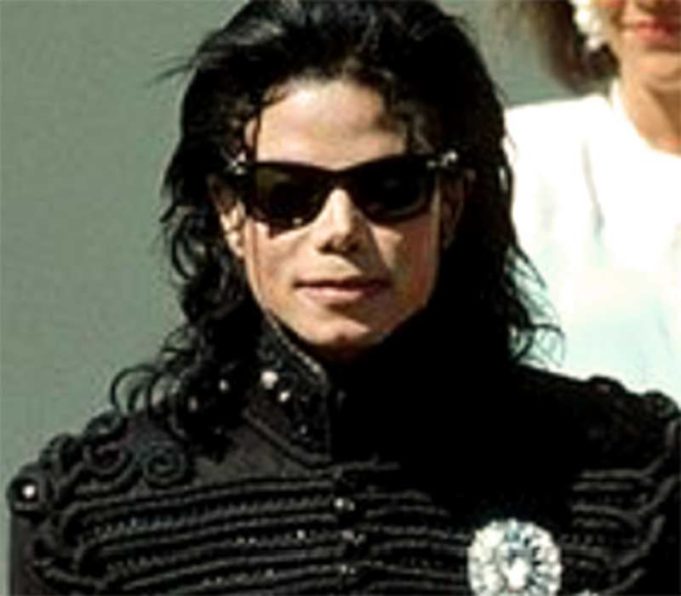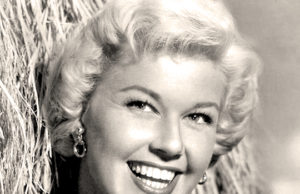Photo by David Valdez / Wikimedia Commons / CC-BY-SA-3.0 / GFDL
Michael Jackson
(Singer)
29 August 1958 – 25 June 2009 (Aged 50)
Jackson was a legendary American singer-songwriter who became the biggest pop star in the world and one of the best-selling music artists of all time, earning the title as the “King of Pop”.
In 1964, Michael made his professional debut as a member of the Jackson 5, along with his elder brothers Jackie, Tito, Jermaine, and Marlon. He was the eighth child of the Jackson family.
In 1971, Jackson began his solo career, with “Smooth Criminal”, “I Just Can’t Stop Loving You”, “Bad”, “The Way You Make Me Feel”, “Man in the Mirror”, “Beat It”, “Billie Jean”, and “Earth Song” becoming some of his best-selling singles.
In 1982, Jackson released his Thriller album, which went on to become the best-selling album of all time, with sales of over 66 million copies worldwide. The popularity of his music videos also helped bring MTV to a wider audience.
Jackson became a figure of controversy due to his lightening skin color, and with a child sexual abuse scandal in 1993, ending with an out of court settlement. In 2005, he was tried and acquitted of further child sexual abuse allegations.
In 2009, while preparing for a series of comeback concerts for his This Is It tour, Jackson died after suffering from cardiac arrest, due to acute propofol and benzodiazepine intoxication.
The Los Angeles County Coroner later ruled his death as a homicide, and his personal physician, Conrad Murray, was convicted of involuntary manslaughter.
Jackson has twice been inducted into the Rock and Roll Hall of Fame and was also inducted into the Songwriters Hall of Fame and the Dance Hall of Fame.
In 2010, he was posthumously awarded the Grammy Lifetime Achievement Award.
Ted Kennedy
(U.S. Senator)

22 February 1932 – 25 August 2009 (Aged 77)
Kennedy was an American politician who served in the United States Senate from Massachusetts for almost 47 years, coming to be known as the “Lion of the Senate”.
A lifelong Democrat, he was the third-longest-continuously-serving senator in United States history.
Ted was the youngest brother of John F. and Robert F. Kennedy, and the father of Congressman Patrick J. Kennedy.
After Robert’s death, Ted became the youngest-ever majority whip in the U.S. Senate and the early front-runner for the Democratic presidential nomination.
However, the following year in 1969, Kennedy accidentally drove his car off a bridge on Chappaquiddick Island, near Martha’s Vineyard, Massachusetts, which came to be known as the Chappaquiddick incident.
The accident resulted in the death of Mary Jo Kopechne, a former staffer during Robert’s presidential campaign. Ted pleaded guilty to leaving the scene of an accident and later received a two-month suspended sentence.
The incident would hinder Kennedy’s chances of ever becoming president, amplified by the fact Kopechne had suffocated, instead of drowning, and could have been saved had Kennedy reported the incident when it happened.
In 1980, Kennedy’s only formal attempt to run for president, he lost the Democratic primary campaign to incumbent President Jimmy Carter, who was later defeated in the general election by Republican Ronald Reagan.
Throughout his time in the Senate, Kennedy amassed a tremendous legislative record, passing bills that benefited the lives of Americans of all classes and races, and was also known for working with Republicans to find compromises.
Legislation Kennedy sponsored included immigration reform, fair housing, public education, AIDS research, numerous programs to aid the poor, and his continuous efforts to enact universal health care, referring to it as the “cause of my life.”
In 2008, Kennedy was diagnosed with a malignant brain tumor, dying from it a year later at the age of 77, in the Kennedy family compound in Hyannis Port, Massachusetts.
In 2009, he also received the U.S. Presidential Medal of Freedom.
Patrick Swayze
(Actor)

18 August 1952 – 14 September 2009 (Aged 57)
Swayze was a much-loved American actor, dancer, and singer most famous for his iconic roles in Dirty Dancing and Ghost.
During the 1980s, Swayze became popular for playing tough guys and romantic lead males, gaining him a huge female fan base.
He also enjoyed musical success with his single “She’s Like the Wind” from the Dirty Dancing soundtrack.
In 1991, Swayze was named by People magazine as its Sexiest Man Alive and in 1996 he received his star of the Hollywood Walk of Fame.
In the late 1990s, Swayze suffered from an alcohol problem that hampered his later acting career. Swayze died of pancreatic cancer at the age of 57.
Corazon Aquino
(Philippines President)

25 January 1933 – 1 August 2009 (Aged 76)
Aquino was a Filipino politician who served as the 11th President of the Philippines and the first female president of the country.
She was widely accredited as the “Mother of Asian Democracy”.
In 1986, Aquino was the most prominent figure of the People Power Revolution, toppling the 21-year rule of President Ferdinand Marcos.
She was considered the leader of the world’s most successful non-violent and bloodless peace revolution.
She was named Time magazine’s Woman of the Year for 1986. Prior to this, she had not held any other elective office.
Aquino emerged as the leader of the opposition after her husband, Senator Benigno Aquino Jr., was assassinated in 1983 after returning from exile in the United States.
During her rule, Aquino achieved mixed results trying to improve the country’s civil liberties, economy, and human rights. She also held peace talks to resolve a Communist insurgency and Islamist secession movements.
Aquino reached the end of her term in 1992, having survived several coup attempts, and returned to civilian life, running a think tank on non-violence.
She died from cancer at the age of 76.
Farrah Fawcett
(Actress)

2 February 1947 – 25 June 2009 (Aged 62)
Fawcett was an American actress and model, best known for her role as private investigator Jill Munroe in the first season of the television series Charlie’s Angels.
In 1976, the same year as Charlie’s Angel’s airing, Fawcett shot to worldwide fame when she posed in an iconic red swimsuit poster, which became the best selling pin-up poster in history, selling in excess of 12 million copies.
Fawcett refused to return for the second season of Charlie’s Angels, which ended in a legal dispute.
Instead, she turned her attention to breaking into film, but her next number of projects all performed poorly at the box office.
During the remainder of the ’80s and ’90s, Fawcett achieved mixed success with her roles, with her best work earning her three Emmy nominations.
Fawcett was diagnosed with anal cancer in 2006, and she died three years later at age 62.
She received a fourth Emmy nomination as the producer of Farrah’s Story, a documentary that detailed her life with cancer.
Walter Cronkite
(Journalist/News Anchor)

4 November 1916 – 17 July 2009 (Aged 92)
Cronkite was a revered American broadcast journalist who was the CBS Evening News anchorman from 1962 to 1981.
Between 1937 and 1981, Cronkite reported from the European front during World War II, the Nuremberg trials, the Vietnam War, Watergate, the Iran Hostage Crisis, and the assassinations of John F. Kennedy, Martin Luther King Jr., and John Lennon.
The only non-NASA recipient of an Ambassador of Exploration award, as a result of his extensive coverage of the U.S. space program, such as the Moon landings and the Space Shuttle.
Cronkite was renowned for his departing catchphrase, “And that’s the way it is”, during his time as anchorman that saw him earn the title of “the most trusted man in America”.
During a distinguished career, Cronkite earned numerous awards, notably winning the Peabody Award twice and being presented with the U.S. Presidential Medal of Freedom in 1981.
Cronkite died from cerebrovascular disease in his New York City home at the age of 92.









